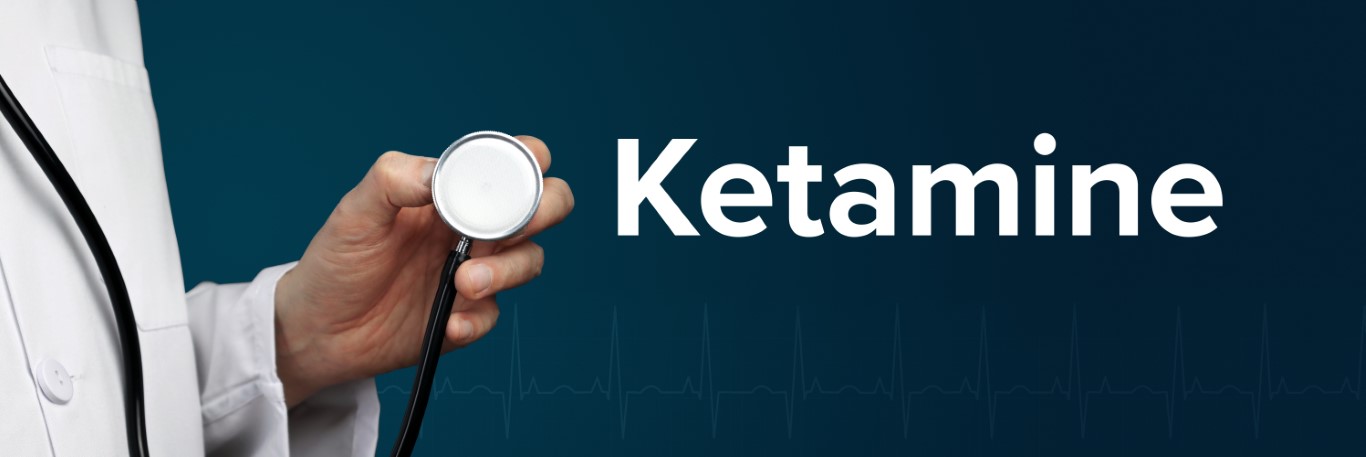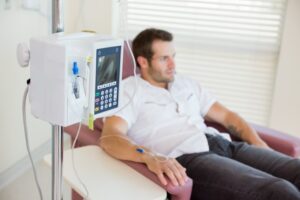
IV Ketamine at The Linden Medical Centre
The Linden Medical Centre provides IV Ketamine to patients suffering with Difficult-to-treat depression, or PTSD. We are proud to offer this research-backed modern treatment to patients who have not responded adequately to first-line antidepressant medications.
An approved non-hospital treatment facility is needed to administer an IV anesthetic such as ketamine. Although we use a sub-anaesthetic dose of Ketamine to treat depression, Ketamine is an anaesthetic drug. Our facility continues to meet the high safety standards set out by the CPSA and CPSS for non-hospital treatment facilities.
An Exceptional team is an essential aspect of IV Ketamine therapy. The care team includes both a psychiatrist and a Physician trained in conscious sedation, for example an Emergency Physician or an Anesthesiologist. The psychiatrist assesses the patient prior to treatment, titrates the dose of the medication, and monitors the client’s response to the treatment. The Physician trained in conscious sedation and an ACLS trained registered nurse ensure each ketamine treatment is safely delivered.
Physician Referrals
Click the button below for our online referral form. You can also download a printable form from the downloads section at the bottom of this page.

Downloads
IV Ketamine Therapy FAQ
The following is a list of frequently asked questions about IV Ketamine treatments at The Linden Medical Centre.
How Does Ketamine for Depression Work?
Traditional antidepressant medication modulates neuron messaging by preventing the re-absorption of serotonin and norepinephrine. This can result in improved communication between nerve cells and stronger circuits that regulate mood. Unfortunately, these medications don’t work for everyone.
BDNF (brain-derived neurotrophic factor) is a protein that supports the survival of existing neurons and encourages the growth of dendrites and synapses. Life stressors and past traumas can inhibit the production of BDNF and predispose people to serious mood and anxiety disorders.
Ketamine acts as an antagonist at the NMDA receptor and blocks the receptor from reabsorbing glutamate. This causes the release of BDNF which helps promote neuronal connectivity. It is believed that this is one of the mechanisms of ketamine’s antidepressant effects.
In summary, ketamine helps create and ‘turn on’ new neural pathways in the brain that are believed to improve mood regulation and create healthier thought patterns.
Who can get Ketamine for Depression?
IV ketamine infusion therapy is an option for adult patients with unipolar depression, bipolar depression, or PTSD who have not responded to 2 or more first line agents. It is contraindicated in patients with unstable cardiovascular disease, psychosis, or a history of ketamine abuse.
What Is The Cost of The Ketamine Treatments? Are they covered?
Please see our Pricing page for current pricing of our services. At this time, IV ketamine infusion therapy for mental health is not covered by provincial health care plans at private clinics. Third party insurance agencies may cover a portion of the cost. We do not direct bill insurance companies but will gladly provide an invoice, cost breakdown and drug identification number (DIN) to submit your claim.
What Happens After I'm Referred?
Your first appointment is a consultation with a Psychiatrist. They will assess your mental and physical health history and answer any questions you have. The psychiatrist will determine if you are an appropriate candidate for IV Ketamine therapy.
Do I need to travel to Saskatoon or Edmonton for my initial Consult?
We require an initial screening consult to ensure ketamine is appropriate for your case. This is normally done at one of our offices, but if you have a long distance to travel, this can be a video consult. For video consults, we’ll need your email address, and you’ll need access to a device or computer with a camera. At your appointment time, simply follow the link in your email, and click on the button that says “join on the web instead”. There is no need to install software on your device.
What Are IV Ketamine Treatments Like?
When you arrive for your infusion, an RN will bring you to a private treatment room. You will meet the physician trained in conscious sedation (ER/anesthesia) who will be administering the medication and monitoring your blood pressure, heart rate and oxygen saturation. An intravenous line (IV) will be started in an extremity and you will be given a weight-based, sub-anesthetic dose of ketamine by continuous infusion over 40 minutes. Depending upon your response to the first infusion, the dose of ketamine or the duration of the infusion may be changed to maximize your response.
Our treatment rooms have blankets, pillows and dimmable lighting for your comfort. You can bring a mobile device to listen to music with earbuds or use our Bluetooth speaker. Family members or friends are welcome to stay with you during the infusion.
How Many Ketamine Infusions Will I Need?
The initial course is a set of 6 infusions. Our clinic recommends 2 infusions per week for 3 weeks for a total of 6 treatments. Required maintenance treatments vary by patient, and can range from weekly to every 6 months.
How Long Will I Stay Well After a Course of Infusions?
The length of symptom remission varies but the average is 3-4 weeks. We recommend returning for a single infusion booster 4 weeks after your initial treatment course. Some patients find that over time they can go longer between booster treatments.
What Are The Side Effects of IV Ketamine Therapy?
The most common side effect of ketamine is dissociation, which is when images appear somewhat distorted. Dissociation affects up to a third of people during the first infusion. The number of people who experience dissociation decreases with each subsequent infusion.
Other common side effects include headache, nausea, dizziness, blurred vision, drowsiness, elevated mood, anxiety, and elevations in blood pressure and heart rate. All the side effects are transient and resolve quickly post-infusion.
An uncommon side effect of ketamine is cystitis or hematuria. This is typically associated with prolonged ketamine abuse but please inform us if you experience bladder pain or blood in your urine.
Are There Any Risks With Ketamine Treatments?
Any time a medication is administered via IV there are risks such as discomfort from the needle stick, bruising, and infection at the IV site. Dosing errors, or drug interactions that require medical intervention such as intubation or hospitalization could also occur. Our non-hospital surgical designation means that we are required to have a specific team of medical professionals who are all trained to respond to these very rare risks.
The other risk is that ketamine may not help your depression, PTSD, or suicidal ideation.
What precautions must I take?
For the remainder of the day after each infusion:
- You must not drive a car, operate hazardous equipment, or engage in hazardous activities.
- Plan to not conduct business or make any critical decisions
- You must refrain from consuming alcohol or other recreational drugs for 24 hours before and 24 hours after an infusion.
- You must inform The Linden Medical Centre of all prescription medications, and over the counter supplements you are taking.
What is the difference between IM/IN/IV/SL ketamine and why we only offer IV?
First, let’s define these acronyms. IV stands for intravenous, which means a medication is given straight into the bloodstream. IN stands for intranasal, which means a medication is given in a mist via a spray into the nasal cavity. SL means sublingual and means the medication is given by a lozenge in the mouth under the tongue. Lastly, IM means intramuscular, which means a medication is given with a needle into the arm, thigh or buttock muscle.
The CANMAT guidelines list IN Spravato (esketamine) and IV ketamine as second line treatments for difficult-to-treat depression. We choose to administer ketamine via IV because it has the highest level of evidence and for the following reasons:
- Administering ketamine via IV has the highest bioavailability (100% compared to 25-55% for IN and 30% for SL). Because of that, the effects are more predictable, and the dose is easier to titrate.
- IV ketamine takes effect quickly (1 minute) and has a 1–2-hour recovery time whereas IN/SL/IM can require 3-4 hours of recovery time. Note: You are not allowed to drive after a ketamine infusion until the following day.
- If an emergency occurs, staff can stop the IV drip and the medication will be out of your system very quickly.
- The nature of IN and IM require more time for the client to receive the effects and recover after treatment. This can increase costs to the client.
If you have any questions about which route of Ketamine is right for you, ask your doctor or psychiatrist.
Are there any No Show or Cancellation fees?
No Show and cancellations with less than 24 hours notice will be charged the full fee – $625.
